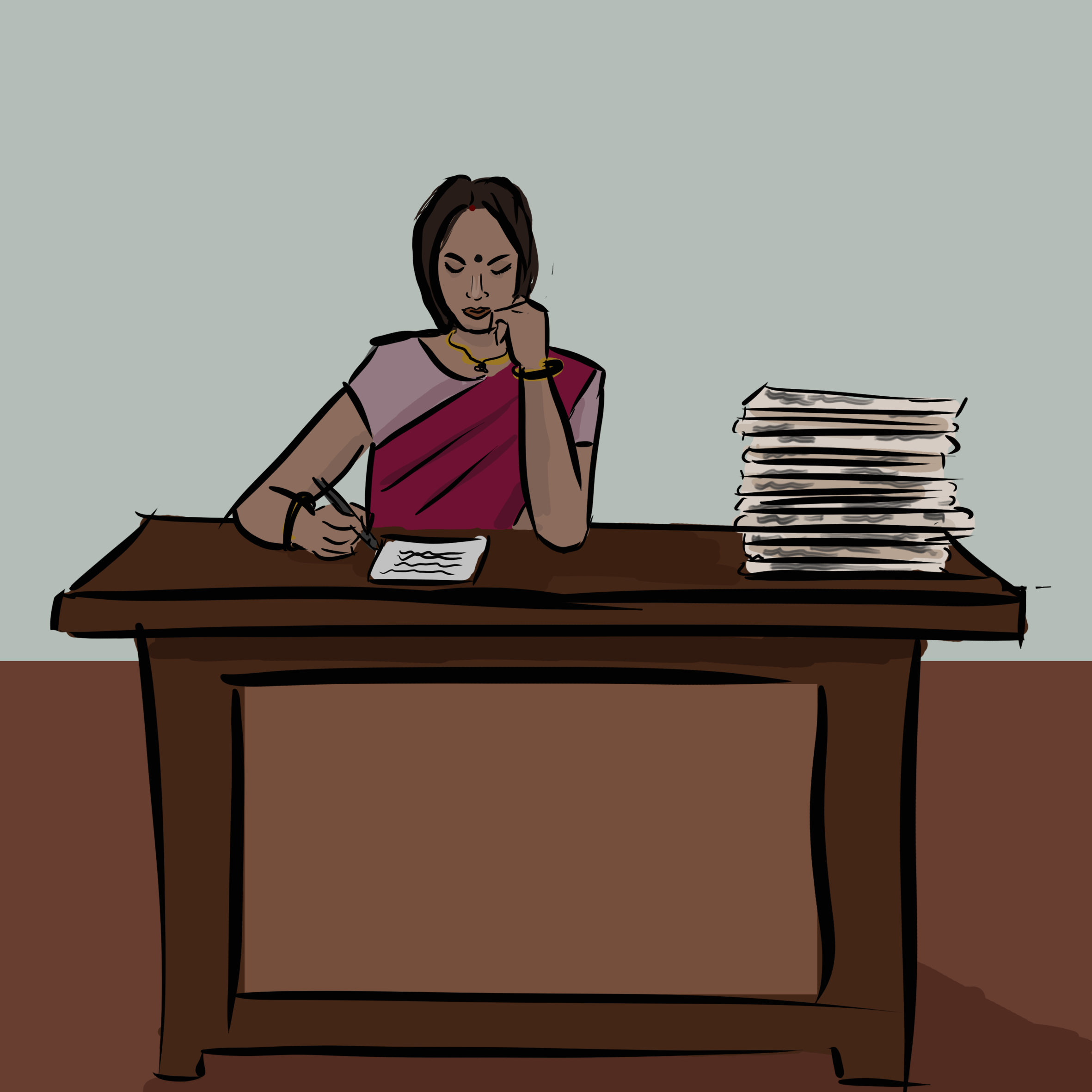“The LTTE didn’t have uniforms back then; they used to wear normal clothes,” recalls Kamala as she describes her childhood in Killinochchi, and her first memories of the conflict. “When they walked on streets with their guns, I used to run out to see them.”
Kamala was born in 1971 in Mannar and moved to Killinochchi at the age of three. As the middle child, with an older sister and three younger siblings, Kamala grew up in a big family. Early on, one of her brothers joined the LTTE, and later she and her sisters agreed that one of the women in the family should also join the LTTE. Through a lottery, her younger sister was selected, and Kamala escorted her to the base. “From that moment, we became more involved in the struggle,” Kamala says, recalling her keen desire to fight for Tamil rights. Unlike her two siblings, Kamala would find her own way into the struggle through her passion of media.

She worked for several media organizations and strongly voiced her criticism against the government. By reporting on people’s problems, their struggles and their needs, she was able to aid the movement. “I was not a fighter, but because I had a pen, I was considered a fighter,” she says. “Media is my heart and soul.”
During the last phases of the war in Pokannai, Kamala lost her grandmother in an attack. After fleeing from the area, Kamala and her mother started travelling towards Mullaivaikkaal by boat, still mourning the loss of her grandma: “We were not able to bury her respectfully. We just threw her in a bunker and kept walking.”
In Mullaivaikkaal, they did not find safety. Like many civilians who did not have closed bunkers, Kamala and her mother were covered by dust, stones, and shell pieces flying over them. Fortunately for those first few days, they were unharmed, but their luck didn’t last, and one day a RPG fell near their bunker, injuring them both. “A piece went into my thigh and another went into my skull. There was no hospital and I was bleeding,” she says, recalling the incident. “I tended my wounds by myself and used a sanitary napkin to cover the wound to stop the bleeding.”
At the time Kamala and her mother were travelling with a priest and a group of civilians and some offered to stay behind with them, but Kamala and her mother refused the help and asked them to leave. “We could not let them die with us,” Kamala explains, recalling a later incident when she was transported in a bus to a hospital and met a boy from Mannar. He could not locate his family and had no money. She had withdrawn some cash from the bank and offered him 2000 rupees. The generosity was not unusual; she had received similar help. In the chaos of those final weeks, the only firm ground resided within one’s compassion.
At the end of the war, Kamala was arrested after someone falsely tipped off the CID that she was a fighter. She was incarcerated for approximately two years and endured the depravity and cruelty of the prison:
The toilets were always full so we cleaned the toilets that were used by Sinhala policewomen. We wore polythene shopping bags as gloves and unloaded the feces into buckets so that we could use those toilets. It was a horrible life. The whole time the army would be whistling at us.
For security reasons, there was no privacy. The high walls and frequent army check points allowed for intrusive surveillance. “It was very depressing for us all,” Kamala adds, questioning her survival in Mullivaikkaal. “When they released us, they said that if we were ever involve in any political activities or did something against the government we will be arrested again.” Kamala noted if that happened, their names would surely be added to the disappeared list.
Kamala’s younger sister died in battle and her brother is still unaccounted for though Kamala and her remaining family still believe he is alive. Now, living a quiet life with her mother in Killinochchi, Kamala reflects on the harsh reality of post-war Sri Lanka. “We had hope until the last minute that we would win this war, we would be free, and we would have our lands,” Kamala says. “We firmly believed this until the very end.” She explains that they did not want to go to the army-controlled areas because even if they went to their side, they were sure they would not survive, unable to live under the army’s control.
Kamala’s frustration is clear and while she and her mother remain resilient she has difficulty finding hope for the future:
Just like now, is this life? Are we living? We are surviving in the midst of many hardships. We cannot express all of it and it is hard to live with. We are not only victimized as women, but as supporters of the movement and a family of Maveerar, we are being victimized from all ends.
To read this story in Tamil please click here.
